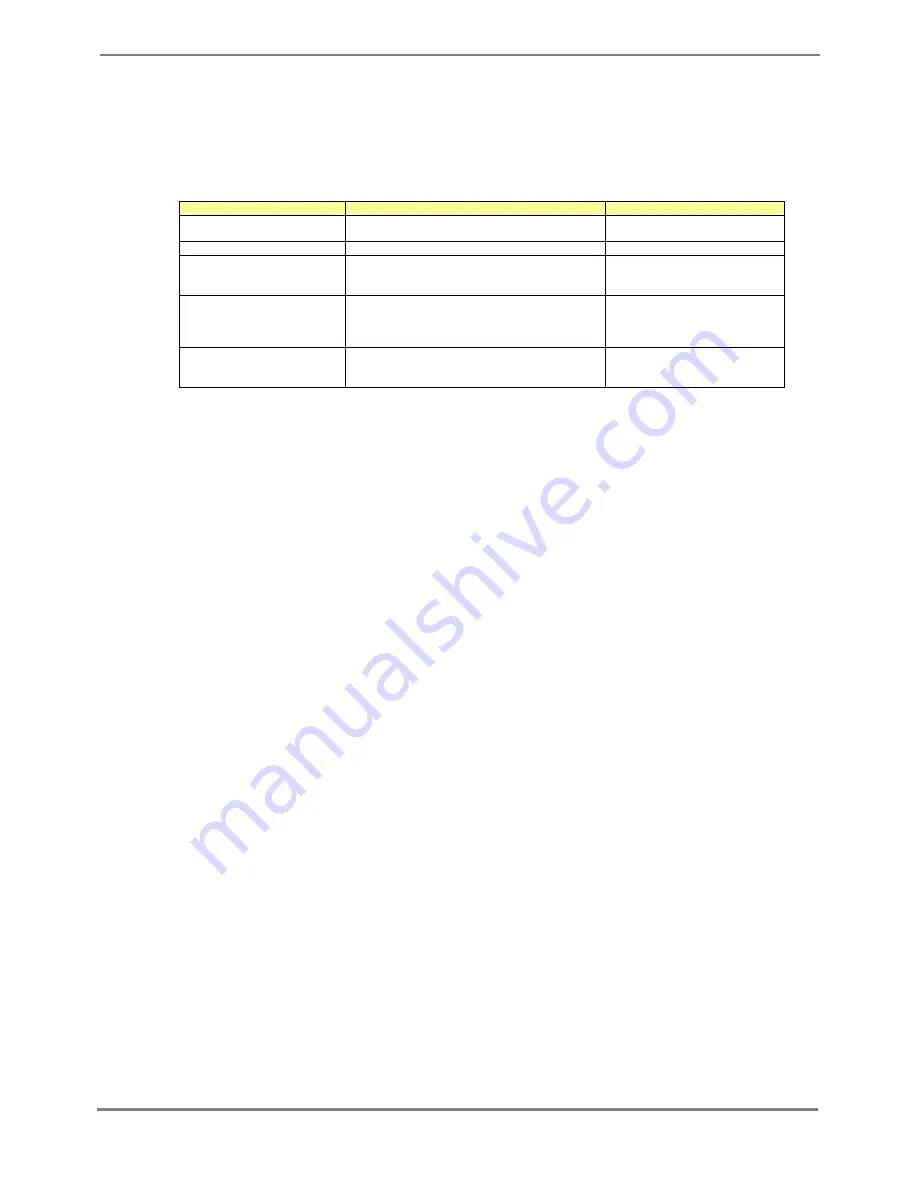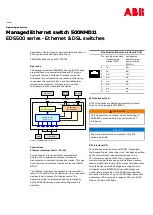
XG700 User's Guide
57/266
All Rights Reserved, Copyright (C) PFU LIMITED 2005-2006
5.1.2 Configuration of Command Reference
This section describes the configuration of command reference and descriptive content.
Function
Explains the functions of the commands.
Prompt
Indicates the prompt of the operation mode, in which commands can be entered.
Command syntax
Describes the command syntax. The notation of the command syntax is as follows:
Notation
Meaning
Example of description
Lower-case characters
Indicate fixed strings such as command names
and keyword names.
enable
Upper-case characters
Indicate parameters specifying any strings.
delete FILE-NAME
[ ]
(Enclosed in a pair of square
brackets)
Indicate omissible parameters.
date [ YYYYMMDD-hhmmss ]
{ | }
(Enclosed in a pair of curly
brackets with a vertical line
in-between)
Indicate parameters, from which at least one
alternative must be chosen.
baudrate
{ 9600|19200|38400|57600 }
< >
(Enclosed in a pair of angle
brackets)
Indicate parameters with a condition of numerical
range.
interface port <1-12>
Parameter
Explains how to specify command parameters, and their meanings.
Command type
Indicates configuration commands (those which retain configuration information in startup-config and running-config ) or
operation management commands (those which are related to configuration of the XG700, such as status display or time
setting).
Default
Indicates the factory default of this command.
Output form
Explains the meaning of output (or input) results, when there is a command output (or input).
Message
Explains messages displayed when executing a command, their solution, and significance.
Note
Explains notes for commands.
Example
Describes how to use commands, using examples.
















































